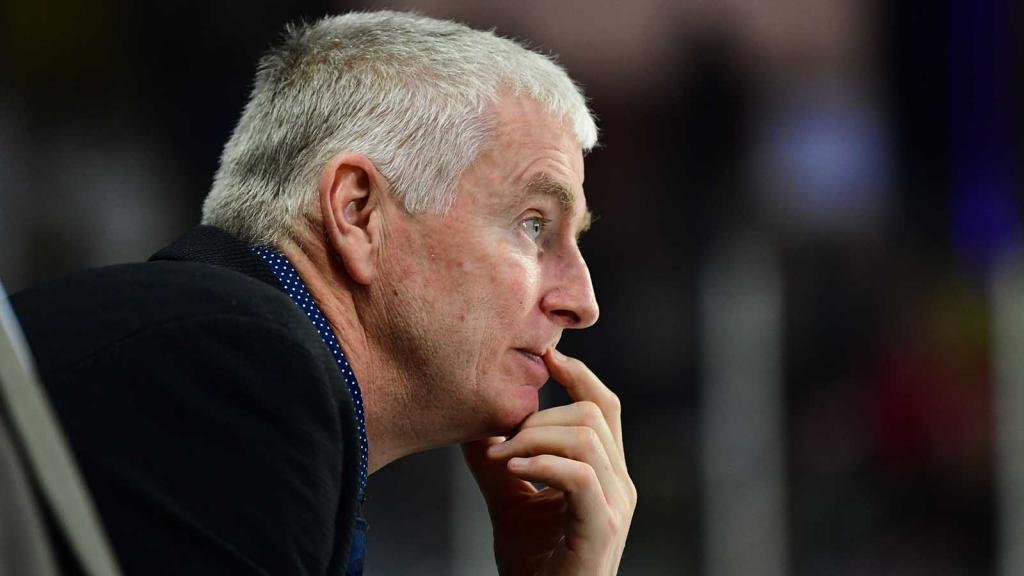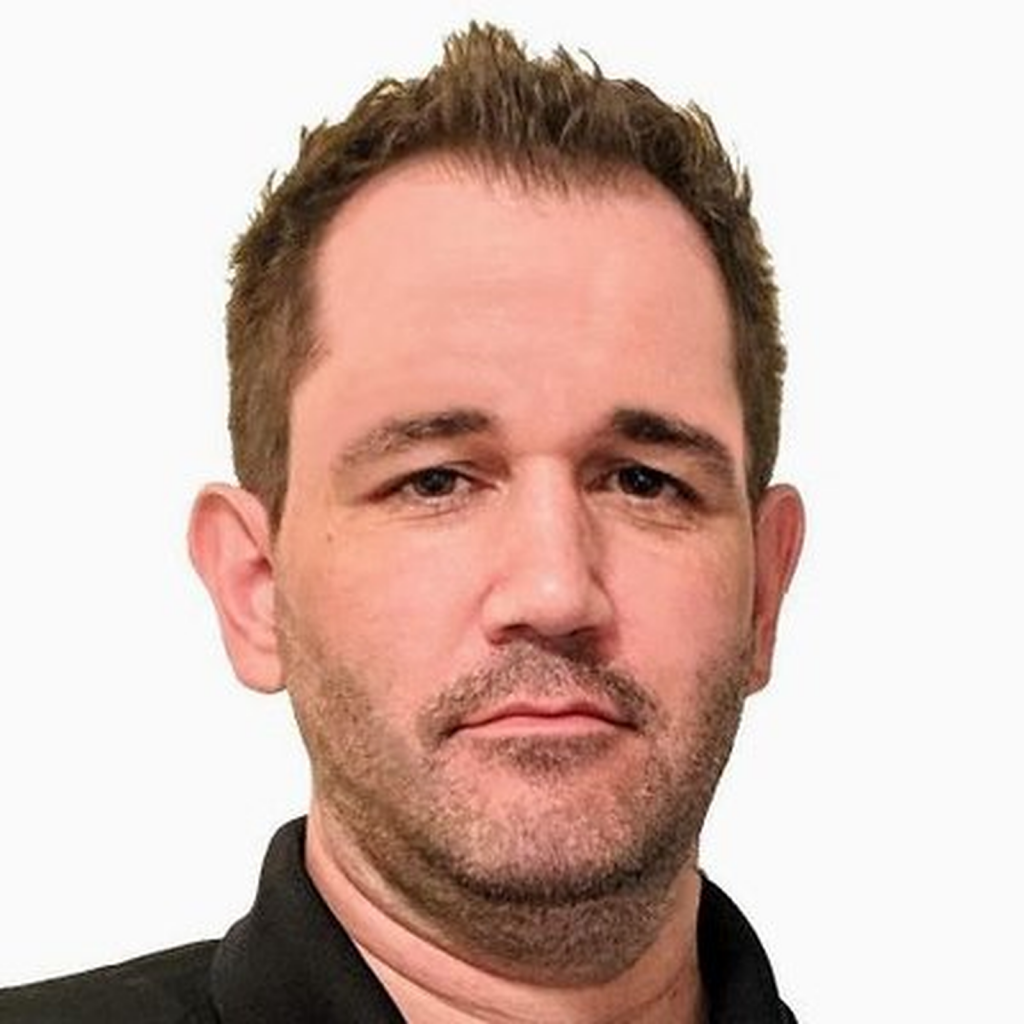AHL ON THE ROAD: Sommer crossing generations – part 2

Last week EP Rinkside took a look at San Jose Barracuda head coach Roy Sommer’s California background and his storied career pacing behind AHL benches for 21 seasons.
In combined NHL and AHL head-coaching history, only Scotty Bowman (2,141 regular-season NHL games), New York Islanders head coach Barry Trotz (2,027 regular-season games between the NHL and AHL), and Joel Quenneville (1,716 in the NHL and AHL ) remain far in the distance for Sommer, who ranks sixth on that list.
This Sunday on the road against the Tucson Roadrunners, Sommer will tie Hockey Hall of Fame member Al Arbour for fifth-place on that list at 1,607 games. He is on track to overtake Mike Keenan (1,626) early next season. Minnesota Wild head coach Bruce Boudreau (1,570) and Paul Maurice (1,600), who guides the Winnipeg Jets, also trail Sommer. (Edmonton Oilers head coach Ken Hitchcock is at 1,789 regular-season games if one factors in his stint in the now-defunct IHL when the Dallas Stars had their top affiliate in that league).
Sommer’s 757 regular-season coaching wins rank first in AHL history, and he has spent all 21 of his AHL seasons in the San Jose Sharks organization. This season he has his Barracuda at 32-19-4-3 in the grueling Pacific Division. Well on track for a fifth consecutive playoff appearance for a Sharks AHL affiliate, the Barracuda are one point behind the second-place San Diego Gulls going into their two-game series at Tucson this weekend.
Here is Part 2 of our EP Rinkside two-part series with Sommer (Part 1 can be found here) with his thoughts and observations on the evolution of the player-development business:
ON THIS SEASON’S BARRACUDA ROSTER
Sommer is a rare face of experience for a very green Barracuda roster.
In terms of years of pro experience, the Barracuda are the third-most inexperienced team in the AHL. That puts them ahead of only the Binghamton Devils and the Hartford Wolf Pack, a pair of teams that have seen veterans traded or recalled to the NHL.
A pair of forwards, captain John McCarthy and T.J. Hensick, are the lone Barracuda players who fall under the AHL veteran rule. McCarthy held that distinction solely until the Barracuda brought in Hensick on an AHL deal on February 12th.
“It’s a team with a lot of prospects that aren’t quite ready,” Sommer said. “Nobody is running away with it [in team scoring], but everybody is a [responsible] player. They play a team game.”
“So, it has kind of rejuvenated my coaching this year. It just has been a lot of fun.”
ON HOW MOVING WEST CHANGED HIS JOB
While Sommer has held the same position for 21 years, the job description has changed dramatically.
Setting up a West Coast presence in represented one of the biggest projects in the AHL’s 83 seasons, and the Sharks helped to push that initiative. Five NHL organizations moved their affiliates to California in 2015. The Arizona Coyotes followed them and set up their Tucson affiliate in 2016, and the Colorado Eagles have become the latest AHL team to move into the western third of the United States.
Along with salary-cap considerations, Western Conference NHL clubs had long sought the same advantages that their Eastern Conference peers had enjoyed for years. The Boston Bruins-Providence Bruins affiliation has been a model set-up going back to 1992. Aside from a three-year break, the Buffalo Sabres-Rochester Americans affiliation dates to 1979. The Toronto Marlies play a five-minute drive from their NHL parent team. A Montreal Canadiens prospect can make a quick walk from Bell Centre, take a quick Montreal Metro ride, and arrive at the Laval Rocket’s front door.
In his AHL previous home with the Worcester Sharks, the team played three time zones away from San Jose. That Massachusetts-based team also played in the very compact New England corner of the AHL map. All of that has changed since the end of the 2014-15 season. Now the organization’s AHL prospects share a home and practice facility with their NHL brethren while also dealing with the heavier travel schedule that accompanies West Coast life.
“Being in Worcester, I used to watch [the parent team’s late-night] games and then fall asleep with the [NHL Center Ice package] song they had going on at the end and then wake up,” Sommer laughed.
“Or I’d see a [Sharks player] get hurt and go, ‘Oh man, here it comes.’ Then they would call me at 1:30 [in the morning] and tell me they need a kid at the rink at 10 [a.m. Pacific time]. So, I’d [call], get [the player] out of bed, he’d get to Boston at 5, fly, go right to the rink, get there for the [morning] skate, play the game that night.
“And then [people] would go, ‘You know, he just wasn’t that good tonight.’”
“Jamie McGinn and Logan Couture would be in the air all the time. They’d fly [back] into Boston, I’d go, ‘How’s the traffic?’ They wouldn’t make warm-up, but they’d get dressed, and go right into the game.”
ON TEACHING (VIDEO), DEVELOPMENT DAYS, NO PRACTICE TIME IN THE NHL
Increased practice time ranked as another priority for those NHL organizations. Pacific Division teams play 68 games rather than the AHL’s standard 76-game schedule.
Since the introduction of the NHL salary cap in 2005, player development has taken on an increasingly more prominent role in NHL organizations, and the Sharks have not been an exception.
Start with the organizational resources that Sommer has on hand now.
In Sommer’s first season with the 1998-99 Kentucky Thoroughblades, he had himself and assistant coach Nick Fotiu. That was it. Back then, an organization’s goaltending coach could pass through town from time to time as well.
This season he has two assistant coaches (Jimmy Bonneau and Michael Chiasson), a video coach (Nick Gialdini), four development coaches with significant NHL backgrounds (Dirk Graham, Bryan Marchment, Mike Ricci, and Niklas Sundstrom), a goaltending coach (Evgeni Nabokov), and a skating coach (Luke Chilcott). That crew is in addition to the benefits of a home at an NHL-caliber practice facility along with regular game and practice viewings by Sharks management.
Now San Jose prospects develop under that close eye.
“[Management] is there,” Sommer said. “There’s nowhere to hide.”
They also practice quite a bit more, and it is much more tailored.
“We practice a lot more,” Sommer said of today in comparison with earlier in his AHL coaching days. “Now we have development days, which we didn’t have in the past. We’ll have a shooting day, a skill day, a skating day. Once or twice a week, we kind of break it up. Then we do our practice, but we put that kind of [skill work] in it.”
That training schedule will be the last time that a player has ample practice time before reaching the NHL. Especially for a Western Conference team like the Sharks, the 82-game regular-season grind and travel schedule affords minimal practice time. Those days between games are for travel, rest, and recovery.
“Once they get to [the NHL], [the Sharks] don’t practice much,” Sommer said. “They practice, maybe, three, four times a month as a team when everybody’s healthy.”
“So, [players have] got to get their foundation and their details at this level because NHL coaches don’t want them if they don’t [have that base].”
ON TEACHING TODAY’S PLAYER
Only McCarthy and Hensick occupy the 30-something bracket on the Barracuda roster. Forward Tim Clifton is 26 years old, and forward Antti Suomela crossed that 25-year-old midway point earlier this week.
But as is standard in the AHL, this is a very young team.
That means that Sommer’s players are products of the tech era, and Sommer has had to adjust accordingly through the years. He delegates some of that video work to his staff as well.
“You can draw on the board all day, and they kind of just look at it,” Sommer said. “Video seems to be the teaching way of today. Before, we hardly did any of it.”
“We show them on the board, do a video, and then take them on the ice. Certain guys learn different ways, but I find that most of these guys learn through video. They really like watching themselves, whether it be good or bad. We spend a lot of time with video, but we don’t kill them with it.”
One constant in the job that Sommer seeks out has not changed, however.
“Hockey is hockey. The ones that you want are the ones who like to compete.”
“I don’t think that has ever changed.”
ON HAVING SPECIAL TEAMS
Sommer has led some special teams through the years, and he can sense when has such a team.
Before moving to the AHL, he won a Kelly Cup in the ECHL in 1995. His 2009-10 AHL team posted 49 regular-season wins before running into then-top Los Angeles Kings prospect Jonathan Bernier and a second-round playoff loss. The 2016-17 Barracuda survived a hard first-round series with the rival Stockton Heat, pushed past a tough San Diego team in the second round, and advanced to the Western Conference final.
On track for another winning record this in 2018-19, Sommer’s teams have finished with winning regular-season marks in 13 of his 20 AHL seasons.
“When you get 20 of them who all like to do the same thing and like to play for one another, that is when you have a special team,” Sommer said. “They don’t come along that often.”
“In 21 years, I’ve had probably, maybe, eight or 10 that were just, like, ‘Wow, this is a fun year!’”
Only time will tell how special this season’s group can be. A Calder Cup is one of the few achievements that is not yet on Sommer’s resume, but simply getting out of a punishing Pacific Division that includes the likes of San Diego and the red-hot Bakersfield Condors would be a significant feat. Still, the Barracuda have enough strong pieces to rank as a viable Calder Cup contender at this point.
Regardless of whether this is the season that Sommer might raise the Calder Cup, he is developing future talent for the Sharks, and those young players no longer have to take the first cross-country morning flight out of Boston to San Jose, either.
“It’s a lot easier on the players, and it doesn’t beat them up. I think it was a great move.”
